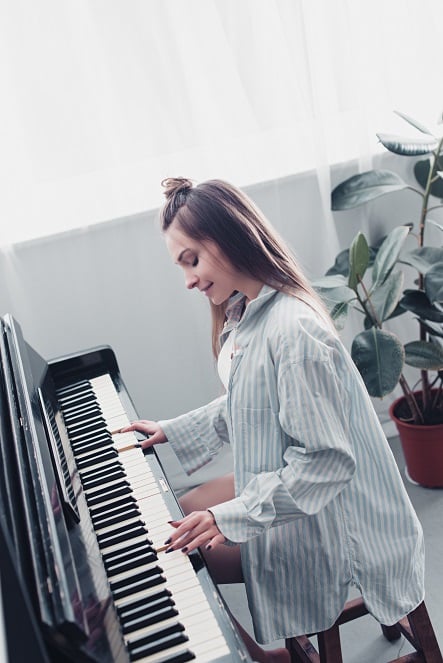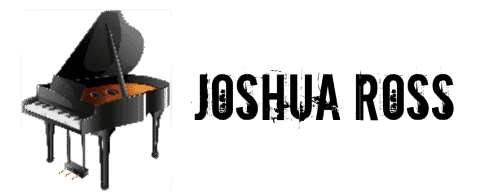As an Amazon Associate I earn from qualifying purchases.
Learning the piano is a fun activity for both kids and adults. While the activity is fun, it takes a lot of concentration and focus. Most parents and teachers wonder how long piano lessons should be so that they can get the most out of them each week.
So, how long should be piano lessons be? Piano lessons should last 30 minutes for young beginner students. For advanced and adult piano students, piano lessons should last 45 minutes to an hour. Degree level pianists can take longer lessons as needed.
30 minutes may not seem like a long time to teach someone how to play the piano correctly. However, with proper lesson planning and clear goals, there’s a lot you can do to maximize each of those weekly lessons. Let’s take a look at the benefits of these lessons times, and the impact they have on students depending on their skill level with the piano.
Want to Learn Piano?Click Here

Benefits Of Shorter Piano Lessons
Piano lessons that last 30 minutes or less are ideal for most students, including adult pianists! This is a small commitment of time and attention to the craft and requires less endurance than a 45 or 60-minute lesson would require.
There is a lot that a piano teacher can accomplish in 30 minutes. Students will be able to learn new repertoire, build no their playing skills, and much more.
Because the lesson is so short, it’s important that students are completely focused and prepared for each lesson. Weekly practice at home is crucial if they want to see steady progress.
30 minute less are also more cost-effective. This is the average amount of piano teachers charge for piano lessons.
In some instances, lessons shorter than 30 minutes are more ideal for students who have shorter attention spans. This usually includes pianists younger than 4 or 5 years old.
Once they stop focusing during a lesson, the lesson becomes useless. This is often displayed by students through an eruption of missed notes, zoning out, and bad behavior.
The disadvantages of shorter piano lessons revolve around the speed of progress. A student taking 30-minute lessons is not going to progress as fast as a student taking 45 or 60-minute lessons.
This is not just with the amount of repertoire being learned, but also their development of other musical skills, technique, sight reading ability, and much more.
Benefits Of Longer Piano Lessons
Longer piano lessons require a greater amount of endurance, especially if the student is young. However, there are many benefits to taking longer piano lessons. Below are a few of those benefits.
More repertoire can be learned
The biggest benefit of longer piano lessons is that more material can be learned in one session. Instead of a student learning 3 pieces, they might be able to squeeze in extra work on a fourth piece and so forth.
Pianists playing more difficult music will simply need more time to go through that music. Especially with multi-movement works, it helps to have additional time to ask questions, work on technical difficulties and get more advise in the lesson.
This is a reason why 45 – 60 minute piano lessons are often offered to higher level players. Occasionally piano teachers will teach younger students for 45 minutes if they can demonstrate a unique musical ability.
More music concepts can be learned
While learning new repertoire is a focal point of piano lessons, learning musical concepts is equally important.
Piano students who take longer lessons have an opportunity to polish many other skills outside of just playing the piano. This includes extensive sight reading, rhythms, flash card activities, and even written activities.
On the technical side of things, pianists can spend the additional 15 – 30 minutes of lesson time working on hand position, building speed and finger dexterity. The additional lesson time is also an ideal period to work in music theory concepts.
As the repertoire becomes more advanced, it’s especially important that students understand musical form, chord analysis, and other technical markings in the music. Many of the beginner piano books include these activities and more alongside the repertoire.
Better financial investment for parents
For piano lessons to be most effective, it helps to have an experienced instructor. Because of that, piano lessons can be quite expensive, ranging anywhere from $30 – $50 for a 30-minute lesson. If the piano teacher has a great reputation, then lessons can cost significantly more.
The rate for lessons does not always follow the same trend, however. For example, many piano teachers will offer a slight discount to students who take longer lessons. The incentive there for the piano teacher is that this means fewer students that they need to add to their schedule.
For parents, that’s a great deal. The piano student gets more lesson time with their teacher while also saving some money. In some cases, siblings can take lessons together, receive more time and also get a better deal on the piano lesson.
How Longer Piano Lessons Affect Piano Teachers
While taking longer piano lessons is a great thing for capable students, for teachers it’s not always as easy. This is because longer lessons cover more material overall.
Also if the teacher has a younger student, keeping them focused and building endurance for those lessons is a tough task.
In order to make sure no time is wasted, piano teachers need to lesson plan that material very carefully. Without planning out a longer lesson, a significant amount of that time can turn into fluff and end up not being helpful to the student.
A strategy I use is to build in at least 20 minutes worth of music concepts. If the student is more advanced and working on a large piece like a Schubert sonata, then I’ll adjust the lesson plan accordingly.
For beginner students taking 45-minute lessons, planning in activities to get them moving around is a great way to keep them engaged. As with any piano lesson, it’s a wise idea to build frequent breaks in the lesson. This helps keep piano students focused on the entire lesson.
What Age Is Best To Start Music Lessons?
The best age to start music lessons is 5 years old. Especially for the piano, it’s much easier to reason with a 5-year-old and discuss music with them. At this age, students are used to interacting with adults on a daily basis in school other than their parents.
This is crucial because a piano teacher and student need to build trust to make the lessons more effective. 5-year-olds are just developing their aural and visual skills. This is a great age to work on their hand position and teach them how to move around the instrument effectively.
With any young student, behavior and endurance during lessons is always a concern. Some students might not be able to lessons north of 30 minutes. Ideally, the older the student is, the easier they will be to teach.
Can A 3 Year Old Learn Piano?
Yes, 3-year-olds can learn the piano. However, it’s important to note that they will learn a much different pace than a 5-year-old would. The piano lesson needs to be specifically designed to focus heavily on music concepts and less on repertoire.
Often piano teachers will need to make significant adjustments to the music they teach to students younger than 3 years old.
This includes reducing the number of measures in the music and simplifying the finger numbers. Even reducing the number of notes played within each measure. Hand size also needs to be taken into account as some pieces require bigger hands to play effectively.
How Often To Take Piano Lessons
Regardless of age, it’s a wise decision to take piano lessons once per week. This gives piano students a full 7 days to digest the information they learned in the lesson, and polish their music. A complete beginner should start with one 30 minute lesson each week.
In some instances, multiple lessons per week is a good idea, but I only recommend that for an ambitious student.
Students who show an ability to learn quickly and work diligently would certainly benefit from multiple weekly lessons. While this requires more planning on the part of a piano teacher, it is not the norm for most students.
Hello & thanks for stopping by! I’m a professional concert pianist and piano instructor. In the United States, I’ve given successful performances in several places including New York, Florida, Connecticut, & New Jersey, I have also performed internationally in Italy and made my Carnegie Hall debut in 2014. I enjoy blogging about the piano, the art of performance, general music, current events and the latest in music production.

How To Avoid Piano Injuries - Joshua Ross
Sunday 10th of February 2019
[…] The same can be said for younger children who have not developed strong enough playing muscles yet. They also need shorter lessons as they build up their endurance so that they can play their best. This is how long piano lessons should be. […]